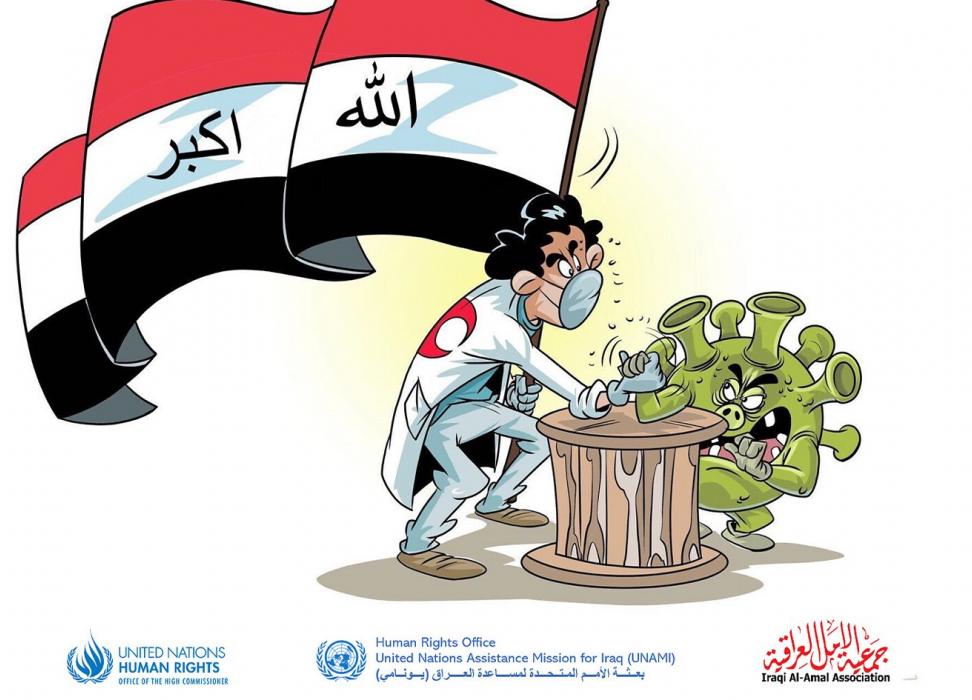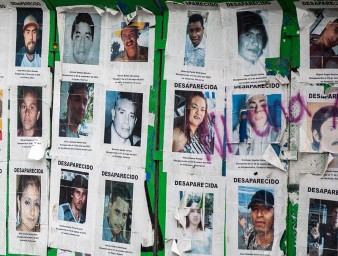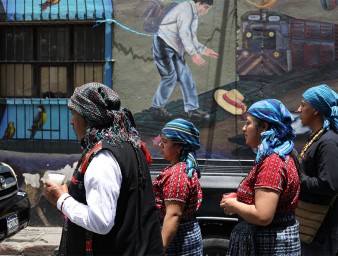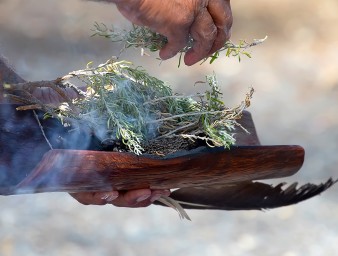Iraqi cartoonists take action on human rights and COVID-19

“The idea of my image is to fight ignorance about the virus, and to promote the power of education,” says Nassir, an Iraqi artist from Baghdad. “All our actions together can contain coronavirus and people need to be educated about what action needs to be taken and what not to do.”
Nassir is one of seven young Iraqi cartoonists who are taking part in a joint social media campaign by the human rights office of the United Nations Assistance Mission in Iraq (UNAMI) and the al Amal Association, an Iraqi organization.
The aim of the vibrant and colourful cartoon series is to dispel rumours about the virus, and to commend the courage and resilience of healthcare workers. One of its other main objectives is to raise awareness on the multitude of human rights consequences that the pandemic has brought to the fore: stigma and discrimination, an increase in domestic violence, limited access to education and decreased access to healthcare.
“The fight to contain COVID-19 in Iraq, must put people – and their rights – front and centre,” says Danielle Bell, Head of UN Human Rights in Iraq. “This campaign highlights the human rights dimensions of this terrible virus by drawing attention to issues faced by Iraqis countrywide. The cartoons also demonstrate the courage, strength and commitment of Iraqi healthcare workers.”
As Iraq’s COVID-19 numbers surge, the campaign takes on even more importance. Following the ease of lockdown measures nationwide, the country has seen a significant increase in cases. According to the Iraqi health authorities, as of 19 July 2020 there were a total of 92,530 confirmed cases, 60,528 recoveries and 3,781 deaths.
“Standing together and showing solidarity with people affected by COVID-19 - especially marginalized and vulnerable groups - is a social responsibility,” says Hasan Wahab, from the al Amal Association. “It requires multiple collaborative efforts to reduce domestic violence and to limit the spread of the virus across Iraq.”
Fighting stigma and misconceptions, promoting and protecting human rights
Stigma around COVID-19 has been one of the barriers to combatting the virus’ spread in Iraq. In Basra for example, UN Human Rights has documented attacks against medical staff by relatives of patients, in fear of their families being ‘shamed’ by stigma.
Through her cartoons, Evan, another Iraqi artist, based in Turkey, wanted to help stem the consequences of stigma. “I wanted to show that it is a disease that can be treated and people who are sick should be treated not punished,” she said.
The joint awareness campaign has also encouraged other local organisations to conduct similar activities of their own. In Erbil, a health information campaign has been carried out, which UN Human Rights hopes can help eliminate misconception, and fight infection-related stigma.
“With the recent increase of COVID-19 cases in Iraq, raising awareness on the facts about the virus can go a long way to flattening the curve,” continues Bell. “Thanks to the creative talent of these artists, we hope to contribute to this awareness among the Iraqi population. Moreover, we want to ensure that fundamental human rights are not forgotten in the battle to eliminate COVID-19.”
For a more detailed look at the campaign and the issues it covers, go to UN Human Rights’ Exposure page. On social media, view the campaign on Facebook and Twitter
All cartoons can be seen on the Flickr account of UN Iraq



